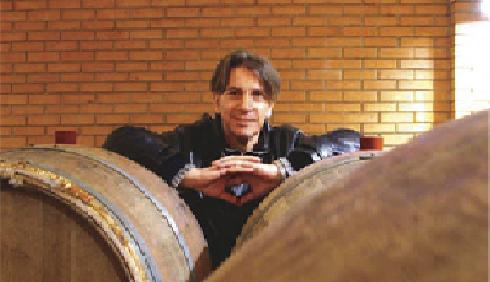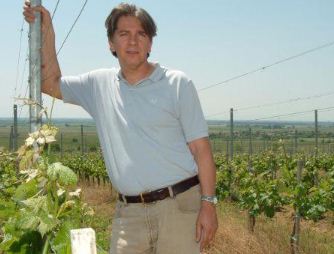Base de données des projets PDR
Establishment of a New Organic Vineyard
Summary
A combination of experienced business acumen, EAFRD co-financing and a personal interest in sustainable agriculture have resulted in the development of a new organic vineyard by one of Hungary's most renowned wine-makers.
Background
Viticulture techniques, which respect the pure authentic character of grapes, are appreciated by an increasing number of consumers and over 2 500 wineries in Europe produce wine made from organic grapes. This market-led incentive was a major motivating factor behind the Malatinszky winery’s decision to seek EAFRD support for their development of a new organic vineyard in Hungary’s grape growing Southern-Danube Region.
Objective
Managed by one of Hungary’s well known rural entrepreneurs, Csaba Malatinszky, the organic vineyard project was designed to diversify and strengthen his winery’s product range. Recognised by commentators for his commitment to constantly improving the quality of his wines, Mr Malatinszky views his organic vineyard as both a sound commercial investment and also an opportunity to further his interest in low-impact land use methods.
Main activities
A new 28 ha organic vineyard was established and a management plan put in place which fully complies with organic production standards. Low input viticulture methodologies include planting resistant varieties; sowing leguminous ground cover between the vines to provide nitrogen, reduce the risk of soil erosion and limit irrigation requirements, and; only using approved organic inputs.
Results & Benefits
Organic certification was achieved in 2010 and the Malatinszky’s first commercial crop of organic grapes was harvested in 2011. Work involved with the new vineyard has led to the winery creating 30 new jobs and more employment gains are predicted in the future with Mr Malatinszky planning to build a new hotel near the vineyard in order to develop wine tourism. This additional diversification opportunity is clearly based upon the decision to follow the market trends and go organic.
Lessons learnt
A personal commitment to environmentally-friendly production methods is key to the success of such projects, but it is also apparent that even market-led business decisions can have multiple benefits in terms of final product quality; protection of the soil and other natural resources; contribution to climate change mitigation, and; the creation of further scope for economic diversification.
Project location and other information
Southern-Danube Region, Baranya County, Villány
Region
Baranya
RDP Territory
Hungary
Total project cost (€)
4 220 700
EAFRD contribution (€)
1 406 900
National contribution (€)
52 758
Private contribution (€)
2 761 042
Project website
Contact name
Malatinszky Csaba
Telephone
+36 72 493 042
Languages for contact
Hungarian
At a glance
Country
Hungary
Final beneficiary type
Individual farmers, Other
Budget range
> €500 000
Start date:
01/03/2009
End Date:
30/11/2010
Theme / Measure:
• Competitiveness of Agriculture & Forestry
• Restructuring, developing physical potential, and promoting innovation
• 123. Adding value to agricultural and forestry products
Keywords:
Organic farming, Pest control, Green cover , Employment, Wine
Last update
16/05/2012





